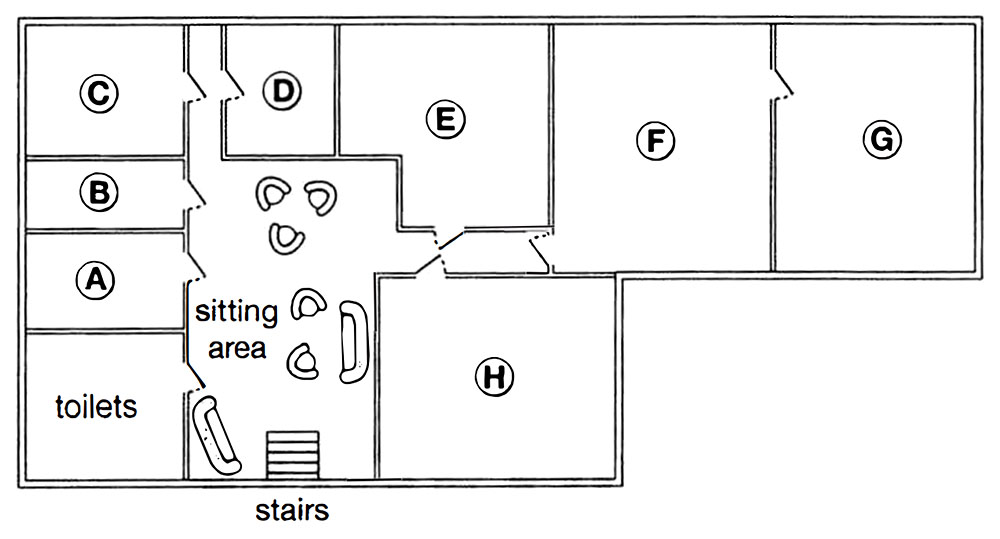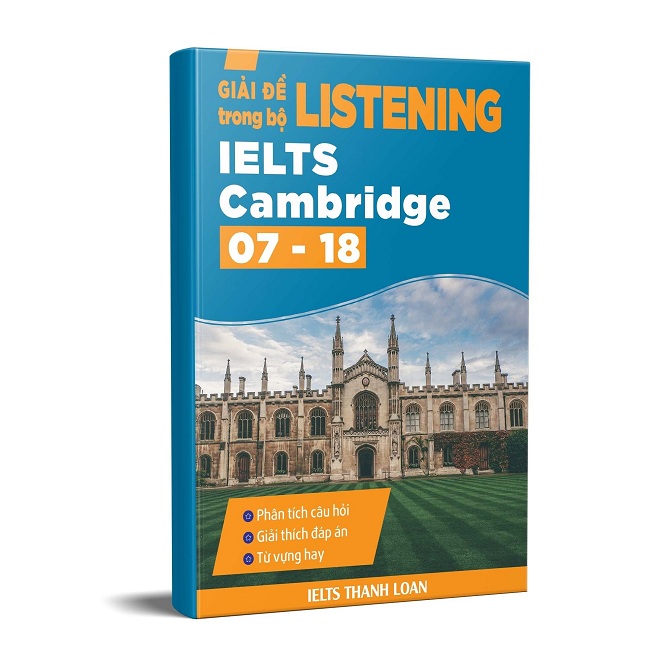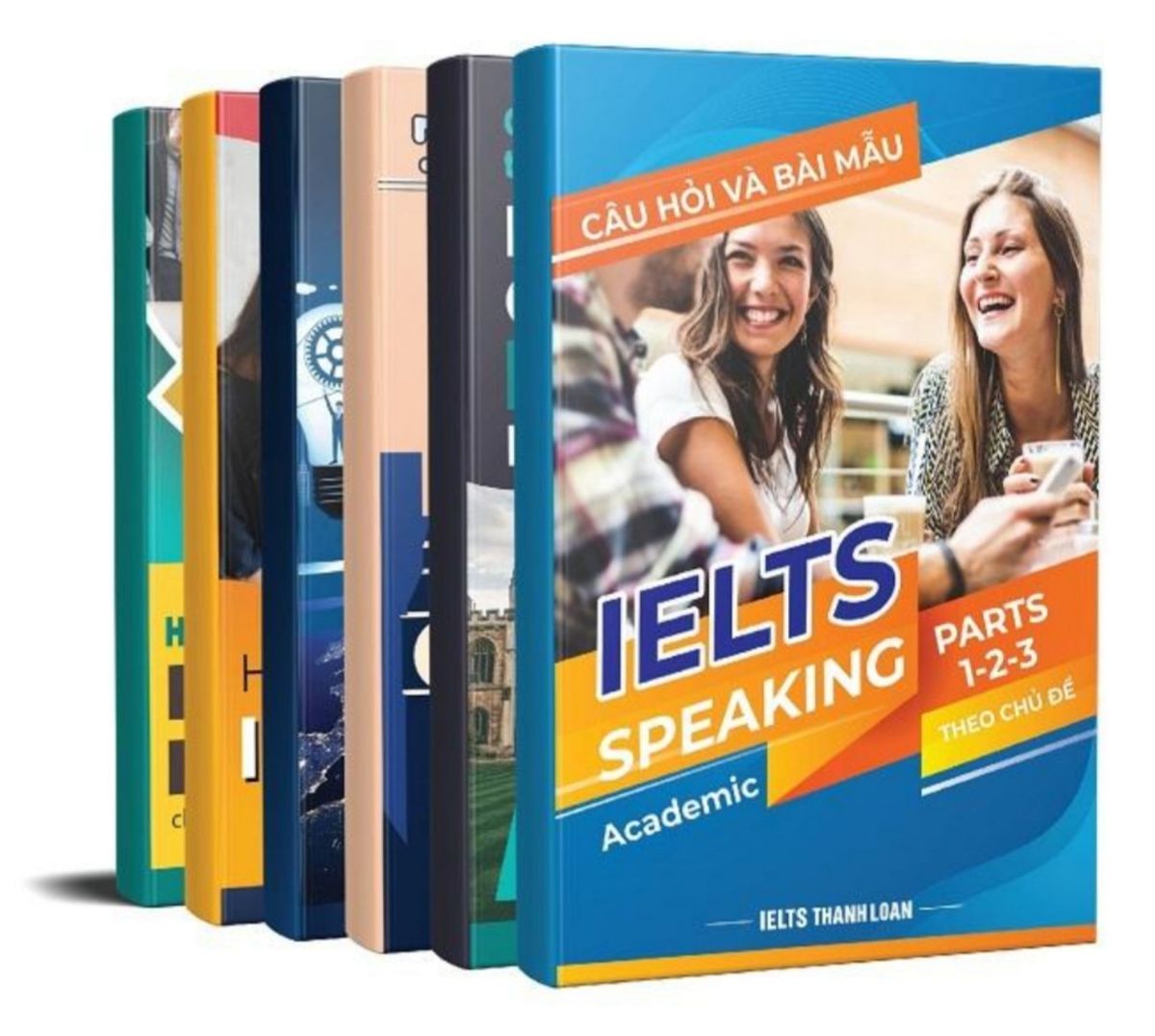Section 1
A – Phân tích câu hỏi
Questions 1-7: Complete the table below. Write ONE WORD AND/OR A NUMBER for each answer.
| Event (Sự kiện) |
Cost (Chi phí) |
Venue (Địa điểm) |
Notes (Ghi chú) |
| Jazz band (Ban nhạc Jazz) |
(Example) Tickets available for £15 (Vé có giá £15) |
The 1 …………….. school (Trường ……………..) → Cần điền một tính từ hoặc danh từ chỉ một ngôi trường. |
Also appearing: Carolyn Hart (plays the 2 ………………) (Có Carolyn Hart xuất hiện để chơi ………………….) → Cần điền một danh từ chỉ một loại nhạc cụ (cấu trúc: to play + the + tên nhạc cụ) |
| Duck races (Đua vịt) |
£1 per duck (£1/ con vịt) |
Start behind the 3 ………………. (Bắt đầu đằng sau ……………………) → Cần điền một danh từ chỉ địa điểm liên quan đến nơi xuất phát cuộc đua) |
Prize: tickets for 4 ….………….. held at the end of the festival. (Giải thưởng: vé …………… được tổ chức cuối lễ hội) → Cần một danh từ chỉ một sự kiện ở cuối lễ hội. Ducks can be bought in the 5 …………………….. (Vịt có thể mua ở …………….) → Cần điền một danh từ chỉ địa điểm mua vịt. |
| Flower show (Ngắm hoa) |
Free (Miễn phí) |
6 ………………..Hall (Phòng/ sảnh ………………) → Cần điền một danh từ chỉ tên riêng của phòng/ sảnh nơi diễn ra show ngắm hoa. |
Prizes presented at 5 pm by a well-known 7 ………………….. (Giải thưởng trao lúc 5h chiều bởi một …………… nổi tiếng) → Cần điền một danh từ chỉ một nhân vật nổi tiếng trao giải thưởng của show. |
Questions 8-10: Write the correct letter, A, B or C, next to Questions 8-10.
Who is each play suitable for?
(Các vở kịch sau phù hợp với ai)
- A. mainly for children (chủ yếu dành cho trẻ em)
- B. mainly for adults (chủ yếu dành cho người lớn)
- C. suitable for people of all ages (phù hợp cho mọi lứa tuổi)
Plays
8. The Mystery of Muldoon
9. Fire and Flood
10. Silly Sailor
→ Hãy tập trung vào bảng trên để nắm được có ba đối tượng chính: trẻ em, người lớn và tất cả lứa tuổi. Sau đó, xem xét tên các vở kịch. Những vở kịch này sẽ được nhắc đến theo thứ tự lần lượt các câu hỏi từ 8 – 10.
B – Giải thích đáp án
ROB: Good morning. Stretton Festival box office. How can I help you?
ROB: Xin chào. Phòng vé Lễ hội Stretton nghe ạ. Tôi có thể giúp gì cho bạn ạ?
MELANIE: Oh, hell. My family and I are on holiday in the area, and we’ve seen some posters about the festival this week. Could you tell me about some of the events, please?
MELANIE: Ồ. Tôi và gia đình đang đi nghỉ ở khu vực này và chúng tôi đã xem qua một số áp phích về lễ hội tuần này. Bạn có thể cho tôi biết về một số sự kiện không?
ROB: Of course.
ROB: Tất nhiên rồi ạ.
MELANIE: First of all, are there still tickets available for the jazz band on Saturday?
MELANIE: À trước tiên thì vẫn còn vé cho ban nhạc jazz vào thứ Bảy chứ ạ?
ROB: There are, but only £15. The £12 seats have all been sold.
ROB: Vẫn còn ạ, nhưng chỉ còn ghế £15 thôi ạ. Ghế £12 đã bán hết. rồi.
MELANIE: Ok. And the venue is the school, isn’t it?
MELANIE: Được. Và địa điểm là ở trường học, phải không ạ?
ROB: Yes, that’s right, the secondary school [Q1]. Make sure you don’t go to the primary school by mistake! And there’s an additional performer who isn’t mentioned on the posters – Carolyn Hart is going to play with the band.
ROB: Vâng, đúng ạ, là ở trường trung học. Hãy chắc chắn rằng bạn không nhầm lẫn mà đến trường tiểu học nhé! Và có thêm một nghệ sĩ biểu diễn không được đề cập trên áp phích – đó là Carolyn Hart sẽ chơi với ban nhạc.
MELANIE: Oh, I think I’ve heard her on the radio. Doesn’t she play the oboe, or flute or something?
MELANIE: Ồ, tôi nghĩ tôi đã nghe về cô ấy trên radio. Cô ấy không chơi oboe hay sáo hay gì đó đúng không ạ?
ROB: Yes. the flute [Q2]. She usually plays with symphony orchestras, and apparently this is her first time with a jazz band.
ROB: Cô ấy có chơi sáo ạ. Cô ấy thường chơi với dàn nhạc giao hưởng, và có vẻ như đây là lần đầu tiên cô ấy chơi với một ban nhạc jazz.
MELANIE: Well, I’d certainly like to hear her. Then the next thing I want to ask about is the duck races – I saw a poster beside a river. What are they, exactly?
MELANIE: Chà, chắc chắn là tôi muốn nghe cô ấy rồi. Điều tiếp theo tôi muốn hỏi đó là về các cuộc đua vịt – Tôi thấy một tấm áp phích bên cạnh một con sông. Chính xác thì chúng là gì thế ạ?
ROB: Well, you buy a yellow plastic duck – or as many as you like – they’re a pound each. And you write your name on each one. There’ll be several races, depending on the number of ducks taking part. And John Stevens, a champion swimmer who lives locally is going to start the races. All the ducks will be launched into the river at the back of the cinema [Q3], then they’ll float along the river for 500 metres, as far as the railway bridge.
ROB: À vâng, bạn cần mua một con vịt bằng nhựa màu vàng – hoặc bao nhiêu con tùy thích – mỗi con nặng một cân. Và sau đó bạn viết tên trên mỗi con. Sẽ có một số cuộc đua, tùy thuộc vào số lượng vịt tham gia. Và John Stevens, một vận động viên bơi lội vô địch tại địa phương sẽ bắt đầu cuộc đua. Tất cả những con vịt sẽ được thả xuống sông ở phía sau rạp chiếu phim, sau đó chúng sẽ trôi dọc theo sông trong 500 mét, cho đến tận cầu đường sắt.
MELANIE: And are there any prizes?
MELANIE: Và có giải thưởng nào không ạ?
ROB: Yes, the first duck in each race to arrive at the finishing line wins its owner free tickets for the concert on the last night of the festival [Q4].
ROB: Có chứ ạ, chú vịt đầu tiên trong mỗi cuộc đua về đích sẽ giành được vé miễn phí cho chủ nhân của nó cho buổi hòa nhạc vào đêm cuối cùng của lễ hội.
MELANIE: You said you can buy a duck? I’m sure my children will both want one.
MELANIE: Bạn nói là có thể chỉ mua một con vịt đúng không ạ? Tôi chắc chắn rằng các con tôi đều sẽ muốn một con.
ROB: They’re on sale at a stall in the market [Q5]. You can’t miss it – it’s got an enormous sign showing a couple of ducks.
ROB: Chúng đang được bán tại một quầy hàng trong chợ. Bạn chắc chắn sẽ thấy nó – vì nó có một dấu hiệu rất lớn cho thấy là có bán vịt ở đấy.
MELANIE: OK. I’ll go there this afternoon. I remember walking past there yesterday. Now could you tell me something about the flower show, please?
MELANIE: Được. Tôi sẽ đến đó vào chiều nay. Tôi nhớ đã đi bộ qua đó ngày hôm qua. Bây giờ bạn có thể cho tôi một vài thông tin về buổi trình diễn hoa được không?
ROB: Well, admission is free, and the show is being held in Bythwaite [Q6] Hall.
ROB: Vâng, phí ra vào là miễn phí ạ, và triển lãm được tổ chức tại Trung tâm Bythwaite.
MELANIE: Sorry, how do you spell that?
MELANIE: Nó được đánh vần như thế nào ạ?
ROB: B-Y-T-H-W-A-I-T-E. Bythwaite.
ROB: B-Y-T-H-W-A-I-T-E. Bythwaite.
MELANIE: Is it easy to find? I’m not very familiar with the town yet.
MELANIE: Nó có dễ tìm không ạ? Vì tôi vẫn chưa quen thuộc với thành phố lắm.
ROB: Oh, you won’t have any problems. It’s right in the centre of Stretton. It’s the only old building in the town, so it’s easy to recognize.
ROB: Ồ, chắc chắn không có vấn đề gì đâu ạ. Nó ở trung tâm của Stretton. Nó là tòa nhà cổ duy nhất ở thành phố nên rất dễ nhận ra ạ.
MELANIE: I know it. I presume it’s open all day.
MELANIE: Vâng tôi nhớ rồi ạ. Tôi đoán là nó mở cửa cả ngày.
ROB:Yes, but if you’d like to see the prizes being awarded for the best flowers, you’ll need to be there at 5 o’clock. The prizes are being given by a famous actor, Kevin Shapless [Q7]. He lives nearby and gets involved in a lot of community events.
ROB: Đúng ạ, nhưng nếu muốn xem giải thưởng loài hoa đẹp nhất, bạn cần phải đến đây lúc 5 giờ. Giải thưởng sẽ được trao bởi nam diễn viên nổi tiếng, Kevin Shapless. Anh ấy sống gần đây và tham gia rất nhiều hoạt động cộng đồng.
MELANIE: Gosh, I’ve seen him on TV. I’ll definitely go to the prize-giving.
MELANIE: Ồ, tôi đã thấy anh ấy trên TV rồi. Tôi nhất định phải đến lễ trao giải này.
ROB: Right.
ROB: Dạ vâng.
MELANIE: I’ve seen a list of plays that are being performed this week, and I’d like to know which are suitable for my children, and which ones my husband and I might go to.
MELANIE: Tôi đã thấy danh sách các vở kịch sẽ được công chiếu tuần này, và tôi muốn biết vở nào phù hợp với con tôi, và vợ chồng tôi.
ROB: How old are your children?
ROB: Con bạn bao nhiêu tuổi rồi ạ?
MELANIE: Five and seven. What about “The Mystery of Muldoon”?
MELANIE: Một đứa 5 tuổi và đứa kia 7 tuổi. Vở “Bí ẩn của Muldoon” thì sao ạ?
ROB: That’s aimed at five to ten-year-olds [Q8].
ROB: Nó dành cho trẻ từ 5 đến 10 tuổi.
MELANIE: So if I take my children, I can expect them to enjoy it more than I do?
MELANIE:: Vậy là nếu tôi đưa con mình đến đây, chúng chắc sẽ thích đúng không ạ?
ROB: I think so. If you’d like something for yourself and your husband, and leave your children with a babysitter, you might like to see “Fire and Flood” [Q9] – it’s about events that really happened in Stretton two hundred years ago, and children might find it rather frightening.
ROB: Tôi nghĩ thế ạ. Nếu bạn và chồng muốn xem gì đó, và để con bạn cho người trông trẻ, bạn có thể xem “Fire and Flood” (Lửa và Lũ lụt) – vở kịch nói về các sự kiện có thực đã xảy ra tại Stretton 200 năm trước, và bọn trẻ có thể sẽ thấy hơi sợ đấy.
MELANIE: Oh, thanks for warning. And finally, what about “Silly Sailor?”
MELANIE: Ồ, cảm ơn bạn đã nói trước ạ. Cuối cùng, còn vở “Thợ may ngốc nghếch” (Silly Tailor) thì sao ạ?
ROB: That’s a comedy, and it’s for young and old [Q10]. In fact, it won an award in the Stretton Drama Festival a couple of months ago.
ROB: Nó là một bộ phim hài, và phù hợp cho cả người già và trẻ em. Thực tế, nó đã thắng giải trong Lễ hội nhạc kịch Stretton vào 2 tháng trước đấy.
MELANIE: OK. Well, goodbye, and thanks for all the information. I’m looking forward to the festival!
MELANIE: Vâng, tạm biệt và cảm ơn bạn đã cho tôi biết thông tin. Tôi rất mong chờ để đến lễ hội!
ROB:Goodbye.
ROB: Vâng, tạm biệt ạ.
| Đáp án |
| Q1. secondary |
| Q2. flute |
| Q3. cinema |
| Q4. concert |
| Q5. market |
| Q6. Bythwaite |
| Q7. actor |
| Q8. A |
| Q9. B |
| Q10. C |
C – Từ vựng
- by mistake (idiom):
Nghĩa: by accident; without intending to
Ví dụ: I took your bag instead of mine by mistake. - additional (adj):
Nghĩa: extra
Ví dụ: He provided additional information about this incident. - on the radio (phrase):
Nghĩa: the programmes that are broadcast
Ví dụ: Did you hear the interview with him on the radio? - on sale (idiom):
Nghĩa: available to be bought, especially in a shop
Ví dụ: Tickets are on sale from the booking office. - stall (noun):
Nghĩa: a table or small shop with an open front that people sell things from, especially at a market
Ví dụ: They have a fish stall on the market. - presume (verb):
Nghĩa: to suppose that something is true, although you do not have actual proof
Ví dụ: I had presumed wrongly that Jenny would be there. - look forward to something (phrasal verb):
Nghĩa: to be thinking with pleasure about something that is going to happen
Ví dụ: I’m looking forward to the weekend.
Bạn đang chuẩn bị cho kì thi IELTS?
Hãy tham khảo khóa học IELTS của cô Thanh Loan
Với 10 năm kinh nghiệm, cô Thanh Loan tự tin mang đến khóa học chất lượng nhất, phương pháp giảng dạy cô đọng dễ hiểu, giáo trình tự biên soạn đầy đủ cho lộ trình từ cơ bản đến luyện đề chuyên sâu. Đặc biệt, học viên luôn được quan tâm sát sao nhất, nhiệt tình, hỗ trợ học viên không giới hạn, thúc đẩy kỷ luật học tập tốt để đạt mục tiêu.

Section 2: Basement of museum
Questions 11 – 16
What does the speaker say about each of the following collections?
Choose SIX answers from the box and write the correct letter, A-G, next to Questions 11-16.
Comments
- A was given by one person
- B was recently publicised in the media
- C includes some items given by members of the public
- D includes some items given by the artists
- E includes the most popular exhibits in the museum
- F is the largest of its kind in the country
- G has had some of its contents relocated
Collections
11 20th- and 21st-century paintings
12 19th-century paintings
13 Sculptures
14 ‘Around the world’ exhibition
15 Coins
16 Porcelain and glass
Questions 17-20
Label the plan below.
Write the correct letter, A-H, next to Questions 17-20.
Basement of museum

17 restaurant …………..
18 café …………..
19 baby-changing facilities …………..
20 cloakroom …………..
Gợi ý sách liên quan
Giải đề Listening trong 12 cuốn IELTS Cambridge từ 07 – 18 (Academic)
Bạn hãy đặt mua Giải đề Listening trong bộ IELTS Cambridge để xem full nhé. IELTS Thanh Loan đã phân tích câu hỏi & giải thích đáp án chi tiết bộ IELTS Cambridge này, giúp quá trình luyện đề Listening của bạn dễ dàng hơn và đạt hiệu quả cao nhất.

Section 3
A – Phân tích câu hỏi
Questions 21-22: Choose TWO letters, A-E.
Which TWO characteristics were shared by the subjects of Joanna’s psychology study?
(Hai đặc điểm nào mà các đối tượng trong nghiên cứu tâm lý của Joanna đều có?)
- A. They had all won prizes for their music.
(Họ đều thắng các giải thưởng về âm nhạc) - B. They had all made music recordings.
(Họ đều làm những đĩa ghi âm nhạc) - C. They were all under 27 years old.
(Họ đều dưới 27 tuổi) - D. They had all toured internationally.
(Họ đều đã từng đi lưu diễn quốc tế) - E. They all played a string instrument.
(Họ đều chơi nhạc cụ dây)
→ Chú ý keywords “two characteristics”, “shared” và “subjects of Joanna’s psychology study”; đáp án là hai đặc điểm chung của đối tượng nghiên cứu của Joanna.
Questions 23-24: Choose TWO letters, A-E.
Which TWO points does Joanna make about her use of telephone interviews?
(Hai điểm nào Joanna nhận ra về việc sử dụng phỏng vấn qua điện thoại?)
- A. It meant rich data could be collected.
(Có thể lấy được nhiều dữ liệu) - B. It allowed the involvement of top performers.
(Có sự tham gia của những người trình diễn hàng đầu) - C. It led to a stressful atmosphere at times.
(Bầu không khí căng thẳng đôi khi xảy ra) - D. It meant interview times had to be limited.
(Thời gian phỏng vấn bị hạn chế) - E. It caused some technical problems.
(Một số vấn đề chuyên môn/ kỹ thuật xảy ra)
Questions 25-26: Choose TWO letters, A-E.
Which TWO topics did Joanna originally intend to investigate in her research?
(Hai chủ đề nào Joanna mới đầu định nghiên cứu?)
- A. regulations concerning concert dress
(Quy định về trang phục trong buổi hòa nhạc) - B. audience reactions to the dress of performers
(Phản ứng khán giả tới trang phục của người biểu diễn) - C. changes in performer attitudes to concert dress
(Thay đổi trong thái độ của người biểu diễn tới trang phục trong buổi hòa nhạc) - D. how choice of dress relates to performer roles
(sự lựa chọn trang phục liên quan thế nào đến vai trò của người biểu diễn) - E. links between musical instrument and dress choice
(mối liên hệ giữa nhạc cụ và sự lựa chọn trang phục)
→ Chú ý keywords “two topics” và “Joanna originally intend to investigate”; đáp án là hai chủ đề mới đầu Joanna định nghiên cứu.
Questions 27-30: Choose the correct letter, A, B or C.
27. Joanna concentrated on women performers because
- A. women are more influenced by fashion.
- B. women’s dress has led to more controversy.
- C. women’s code of dress is less strict than men’s.
→ Dịch: Joanna tập trung vào những người biểu diễn nữ vì: phụ nữ bị ảnh hưởng hơn bởi thời trang/ trang phục của phụ nữ gây tranh cãi hơn/ trang phục của phụ nữ ít hạn chế hơn đàn ông.
→ Chú ý keywords “Joanna” và “concentrated on women”; đáp án là lý do Joanna tập trung vào đối tượng biểu diễn là nữ.
28. Mike Frost’s article suggests that in popular music, women’s dress is affected by
- A. their wish to be taken seriously.
- B. their tendency to copy each other.
- C. their reaction to the masculine nature of the music.
→ Dịch: Bài báo của Mike Frost cho rằng ở âm nhạc thịnh hành, trang phục của phụ nữ bị ảnh hưởng bởi: mong muốn được coi trọng của họ/ xu hướng sao chép lẫn nhau của họ/ phản ứng của họ tới bản nam tính của âm nhạc.
→ Chú ý keywords “Mike Frost’s article”, “popular music”, “women’s dress” và “affected”; đáp án là điều ảnh hưởng việc ăn mặc của phụ nữ trong âm nhạc thịnh hành.
29. What did Joanna’s subjects say about the audience at a performance?
- A. The musicians’ choice of clothing is linked to respect for the audience.
- B. The clothing should not distract the audience from the music.
- C. The audience should make the effort to dress appropriately.
→ Dịch: Đối tượng của Joanna nói gì về khán giả ở một buổi biểu diễn: quần áo của nhạc sĩ liên quan đến sự tôn trọng dành cho khán giả, quần áo không nên làm khán giả mất tập trung vào âm nhạc hay khán giả nên ăn mặc sao cho phù hợp.
→ Chú ý keywords “what”, “Joanna’s subjects say” và “audience”; đáp án là những gì đối tượng nghiên cứu của Joanna nói về khán giả của một buổi biểu diễn.
30. According to the speakers, musicians could learn from sports scientists about
- A. the importance of clothing for physical freedom.
- B. the part played by clothing in improving performance.
- C. the way clothing may protect against physical injury.
→ Dịch: theo người nói, nhạc sĩ có thể học từ các nhà khoa học thể thao về: tầm quan trọng của ăn mặc thoải mái/ vai trò của quần áo trong việc nâng cao màn thể hiện/ việc quần áo có thể giúp tránh chấn thương vật lý như thế nào.
→ Chú ý keywords “speakers”, “musicians” và “learn from sports scientists”; đáp án là điều các nhạc sĩ có thể học hỏi từ các nhà khoa học thể thao.
B – Giải thích đáp án
SUPERVISOR: Hi, Joanna, good to meet you. Now, before we discuss your new research project, I’d like to hear something about the psychology study you did last year for your Master’s degree. So how did you choose your subjects for that?
GIÁM SÁT: Chào Joanna, rất vui được gặp em. Trước khi chúng ta thảo luận về dự án nghiên cứu mới của em thì thầy muốn nghe qua về nghiên cứu tâm lý học mà em đã thực hiện vào năm ngoái để lấy bằng Thạc sĩ. Em đã chọn môn học của mình như thế nào?
JOANNA: Well, I had six subjects, all professional musicians, and all female. Three were violinists and there was also a cello player and a pianist and a flute player. They were all very highly regarded in the music world and they’d done quite extensive tours in different continents [Q21 & 22], and quite a few had won prizes and competitions as well.
JOANNA: Vâng, em đã chọn sáu đối tượng, tất cả đều là nhạc sĩ chuyên nghiệp và tất cả trong số họ đều là nữ. Ba người là nghệ sĩ vĩ cầm và có một người chơi cello, một nghệ sĩ dương cầm và một người thổi sáo. Họ đều được đánh giá rất cao trong giới âm nhạc, và họ đã thực hiện các chuyến lưu diễn khá rộng rãi ở các châu lục khác, và một số người cũng đã giành được các giải thưởng và cuộc thi ạ.
SUPERVISOR: And they were quite young, weren’t they?
GIÁM SÁT: Thế thì họ vẫn còn khá trẻ, phải không?
JOANNA: Yes, between 25 and 29 – the mean was 27.8. I wasn’t specifically looking for artists who’d produced recordings, but this is something that’s just taken for granted these days, and they all had [Q21 & 22].
JOANNA: Vâng ạ, độ tuổi của họ từ 25 đến 29 – trung bình là 27,8. Em không muốn tìm những nghệ sĩ đã xuất bản thu âm nhưng điều này ngày nay được coi là đương nhiên và tất cả họ đều xuất bản thu âm rồi.
SUPERVISOR: Right. Now you collected your data through telephone interviews, didn’t you?
GIÁM SÁT: Đúng vậy. Em đã thu thập dữ liệu của mình thông qua các cuộc phỏng vấn qua điện thoại rồi đúng không?
JOANNA: Yes. I realised if I was going to interview leading musicians it’d only be possible over the phone because they’re so busy [Q23 & 24]. I recorded them using a telephone recording adaptor. I’d been worried about the quality, but it worked out all right. I managed at least a 30-minute interview with each subject, sometimes longer.
JOANNA: Vâng ạ. Em nhận ra rằng nếu em định phỏng vấn các nhạc sĩ nổi tiếng thì chỉ có thể gọi qua điện thoại vì họ rất bận. Em đã ghi âm chúng lại bằng bộ chuyển đổi ghi âm điện thoại. Em đã rất lo lắng về chất lượng, nhưng chúng không sao cả. Em đã có một cuộc phỏng vấn ít nhất 30 phút với mỗi đối tượng tham gia rồi ạ.
SUPERVISOR: Did doing it on the phone make it more stressful?
GIÁM SÁT: Thực hiện điều đó trên điện thoại có làm cho nó căng thẳng hơn không vậy?
JOANNA: I’d thought it might… it was all quite informal though and in fact they seemed very keen to talk. And I don’t think using the phone meant I got less rich data, rather the opposite in fact [Q23 & 24].
JOANNA: Em nghĩ là có thể đấy ạ … mặc dù vậy thì em thấy là họ khá là thân thiện và thực tế là họ có vẻ rất muốn chia sẻ. Thế nên em không nghĩ là việc sử dụng điện thoại có nghĩa là em sẽ có ít dữ liệu phong phú hơn mà thực tế là ngược lại đấy ạ.
SUPERVISOR: Interesting. And you were looking at how performers dress for concert performances?
GIÁM SÁT: Hay đấy. Và em đang xem những người biểu diễn ăn mặc như thế nào để biểu diễn trong buổi hòa nhạc phải không?
JOANNA: That’s right. My research investigated the way players see their role as a musician and how this is linked to the type of clothing they decide to wear. But that focus didn’t emerge immediately. When I started I was more interested in trying to investigate the impact of what was worn on those listening [Q25 & 26], and also whether someone like a violinist might adopt a different style of clothing from, say, someone playing the flute or the trumpet [Q25 & 26].
JOANNA: Vâng ạ. Nghiên cứu của em đã điều tra cách người chơi nhìn nhận vai trò của họ với tư cách là một nhạc sĩ và điều này có liên quan như thế nào đến loại trang phục mà họ quyết định mặc. Nhưng điểm đó không xuất hiện ngay lập tức. Khi em bắt đầu thì em quan tâm nhiều hơn đến việc cố gắng điều tra tác động của những thứ được mặc lên những người đang nghe, và việc liệu cả một người như nghệ sĩ vĩ cầm có thể áp dụng một kiểu quần áo khác, chẳng hạn như ai đó thổi sáo hay kèn.
SUPERVISOR: It’s interesting that the choice of dress is up to the individual, isn’t it?
GIÁM SÁT: Thật là thú vị khi việc lựa chọn trang phục là tùy thuộc vào mỗi cá nhân phải không?
JOANNA: Yes, you’d expect there to be rules about it in orchestras, but that’s quite rare.
JOANNA: Vâng ạ, thầy mong đợi sẽ có những quy tắc ở trong dàn nhạc, nhưng điều đó là khá hiếm đấy ạ.
SUPERVISOR: You only had women performers in your study. Was that because male musicians are less worried about fashion?
GIÁM SÁT: Trong nghiên cứu của em chỉ có phụ nữ biểu diễn. Có phải đó là bởi vì nam nhạc sĩ không quan tâm lắm về thời trang không?
JOANNA: I think a lot of the men are very much influenced by fashion, but in social terms the choices they have are more limited … they’d really upset audiences if they strayed away from quite narrow boundaries [Q27].
JOANNA: Em nghĩ rằng nhiều người đàn ông bị ảnh hưởng rất nhiều bởi thời trang, nhưng về mặt xã hội, thì sự lựa chọn của họ bị hạn chế hơn … họ sẽ khiến khán giả khó chịu nếu họ đi lạc khỏi ranh giới đó.
SUPERVISOR: Hmm. Now, popular music has quite different expectations. Did you read Mike Frost’s article about the dress of women performers in popular music?
GIÁM SÁT: Ừm. Bây giờ, âm nhạc đại chúng có những kỳ vọng khá khác nhau. Em đã đọc bài báo của Mike Frost về trang phục của phụ nữ biểu diễn trong âm nhạc nổi tiếng chưa?
JOANNA: No.
JOANNA: Chưa ạ.
SUPERVISOR: He points out that a lot of female singers and musicians in popular music tend to dress down in performances, and wear less feminine clothes, like jeans instead of skirts, and he suggests this is because otherwise they’d just be discounted astrivial [Q28].
GIÁM SÁT: Anh ấy chỉ ra rằng rất nhiều nữ ca sĩ và nhạc sĩ trong dòng nhạc đại chúng có xu hướng ăn mặc xuề xòa khi biểu diễn và mặc quần áo không nữ tính lắm, như quần jean thay vì váy, và anh ấy gợi ý điều này là bởi vì nếu không thì họ sẽ chỉ được coi là tầm thường.
JOANNA: But you could argue they’re just wearing what’s practical … I mean, a pop-music concert is usually a pretty energetic affair.
JOANNA: Nhưng thầy có thể tranh luận rằng họ chỉ mặc những gì thiết thực nhất… Ý em là một buổi hòa nhạc nhạc pop thường khá năng động.
SUPERVISOR: Yes, he doesn’t make that point, but I think you’re probably right. I was interested by the effect of the audience at a musical performance when it came to the choice of dress.
GIÁM SÁT: Đúng, anh ấy không đưa ra quan điểm đó, nhưng thầy nghĩ rằng là em có thể đúng. Thầy quan tâm đến hiệu ứng của khán giả tại một buổi biểu diễn âm nhạc khi nói đến việc lựa chọn trang phục hơn.
JOANNA: The subjects I interviewed felt this was really important. It’s all to do with what we understand by performance as a public event. They believed the audience had certain expectations and it was up to them as performers to fulfil these expectations, to show a kind of esteem [Q29] …
JOANNA: Những đối tượng mà em phỏng vấn cảm thấy điều này thực sự quan trọng. Tất cả đều liên quan đến những gì chúng ta hiểu bằng buổi trình diễn như một sự kiện công khai. Họ tin rằng khán giả có những kỳ vọng nhất định và họ là những người biểu diễn để đáp ứng những kỳ vọng này, thể hiện một sự quý trọng …
SUPERVISOR: … they weren’t afraid of looking as if they’d made an effort to look good.
NGƯỜI GIÁM SÁT: … họ không ngại nhìn như thể họ đã nỗ lực để trông ổn.
JOANNA: Mmm. I think in the past the audience would have had those expectations of one another too, but that’s not really the case now, not in the UK anyway.
JOANNA: Mmm. Em nghĩ rằng trước đây khán giả cũng có những kỳ vọng đó ở nhau, nhưng điều đó bây giờ thực sự không xảy ra, dù sao thì cũng không phải ở Vương quốc Anh.
SUPERVISOR: No.
GIÁM SÁT: Không.
JOANNA: And I also got interested in what sports scientists are doing too, with regard to clothing.
JOANNA: Và em cũng quan tâm đến những gì các nhà khoa học thể thao đang làm, liên quan đến quần áo.
SUPERVISOR: Musicians are quite vulnerable physically, aren’t they, because the movements they carry out are very intensive and repetitive, so I’d imagine some features of sports clothing could safeguard the players from the potentially dangerous effects of this sort of thing [Q30].
GIÁM SÁT: Các nhạc sĩ rất dễ bị tổn thương về mặt thể chất, phải không, vì các động tác họ thực hiện rất nặng và lặp đi lặp lại, vì vậy thầy tưởng tượng một số tính năng của quần áo thể thao có thể bảo vệ người chơi khỏi những tác động nguy hiểm tiềm ẩn của nó.
JOANNA: Yes, but musicians don’t really consider it. They avoid clothing that obviously restricts their movements, but that’s as far as they go.
JOANNA: Vâng, nhưng các nhạc sĩ không thực sự quan tâm đến nó. Họ tránh những bộ quần áo hạn chế cử động của họ, nhưng đó là cách họ đi.
SUPERVISOR: Anyway, coming back to your own research, do you have any idea where you’re going from here?
GIÁM SÁT: Quay lại với nghiên cứu của em, em có biết mình sẽ bắt đầu từ đâu không?
JOANNA: I was thinking of doing a study using an audience, including …
JOANNA: Em đã nghĩ đến việc thực hiện một nghiên cứu có liên quan đến khán giả, bao gồm …
| Từ vựng trong câu hỏi và đáp án | Từ vựng trong transcript | |
| Q21 & 22. B, D | made music recordings | produced recordings; they all had |
| toured internationally | done quite extensive tours in different continents | |
| Q23 & 24. A, B | rich data could be collected | I don’t think … less rich data, rather the opposite in fact |
| involvement of top performers | interview leading musicians | |
| Q25 & 26. B, E | audience reactions to the dress of performers | the impact of what was worn on those listening |
| links between musical instrument and dress choice | whether someone like a violinist might adopt a different style … trumpet | |
| Q27. C | women’s code of dress is less strict than men’s | the choices they have are more limited |
| Q28. A | their wish to be taken seriously | otherwise they’d just be discounted as trivial |
| Q29. A | the musicians’ choice of clothing is linked to respect for the audience | audience had certain expectations … a kind of esteem |
| Q30. C | clothing may protect against physical injury | vulnerable physically; sports clothing could safeguard the players |
C – Từ vựng
- take it for granted (idiom):
Nghĩa: to believe something is true without first making sure that it is
Ví dụ: She seemed to take it for granted that I would go with her to New York. - leading (adj) (only before noun):
Nghĩa: most important or most successful
Ví dụ: She was offered the leading role in the new TV series. - on the phone (phrase):
Nghĩa: the system for talking to somebody else using a phone
Ví dụ: I talk to my family on the phone. - upset somebody (verb):
Nghĩa: to make somebody/yourself feel unhappy, anxious or annoyed
Ví dụ: This decision is likely to upset a lot of people. - stray (verb):
Nghĩa: to start thinking or talking about a different subject from the one you should be giving attention to
Ví dụ: I think we’ve strayed too far from our original plan. - dress down (phrasal verb):
Nghĩa: to wear clothes that are more informal than those you usually wear, for example in an office
Ví dụ: She always dress down when going to work. - discount something as something (verb):
Nghĩa: to think or say that something is not important or not true
Ví dụ: The news reports were being discounted as propaganda. - trivial (verb):
Nghĩa: not important or serious; not worth considering
Ví dụ: I know it sounds trivial, but I’m worried about it. - when it comes to (doing) something (idiom):
Nghĩa: when it is a question of something
Ví dụ: When it comes to getting things done, he’s useless. - safeguard something/somebody (verb):
Nghĩa: to protect something/somebody from loss, harm or damage
Ví dụ: The new card will safeguard the company against fraud.
Đề xuất bộ sách IELTS
Combo 6 cuốn luyện đề IELTS sát thật trước khi đi thi (Academic)
Gồm có: Series giải Listening và Reading trong bộ IELTS Cambridge huyền thoại, là nguồn tài liệu luyện thi sát thật nhất + Giải đề thi IELTS Writing Task 1 & 2 của các đề thi cũ, có tỉ lệ trúng tủ cực cao + Bài mẫu IELTS Speaking Part 1 2 3 theo chủ đề + Hai cuốn sách từ vựng & ý tưởng Writing & Speaking theo chủ đề

Section 4: The use of soil to reduce carbon dioxide (CO2) in the atmosphere
Questions 31 – 40
Complete the notes below. Write ONE WORD ONLY for each answer.
The use of soil to reduce carbon dioxide (CO2) in the atmosphere
Rattan Lal:
- Claims that 13% of CO2 in the atmosphere could be absorbed by agricultural soils
- Erosion is more likely in soil that is 31…………….
- Lai found soil in Africa that was very 32……………
- It was suggested that carbon from soil was entering the atmosphere
Soil and carbon:
- plants turn CO2 from the air into carbon-based substances such as 33……………
- some CO2 moves from the 34……………. of plants to microbes in the soil
- carbon was lost from the soil when agriculture was invented
Regenerative agriculture:
- uses established practices to make sure soil remains fertile and 35……………..
- e.g. through year-round planting and increasing the 36…………… of plants that are grown
California study:
- taking place on a big 37…………….. farm
- uses compost made from waste from agriculture and 38………………
Australia study:
- aims to increase soil carbon by using 39……………… that are always green
Future developments may include:
- reducing the amount of fertilizer used in farming
- giving farmers 40……………. for carbon storage, as well as their produce
Gợi ý sách liên quan
Giải đề Listening trong 12 cuốn IELTS Cambridge từ 07 – 18 (Academic)
Bạn hãy đặt mua Giải đề Listening trong bộ IELTS Cambridge để xem full nhé. IELTS Thanh Loan đã phân tích câu hỏi & giải thích đáp án chi tiết bộ IELTS Cambridge này, giúp quá trình luyện đề Listening của bạn dễ dàng hơn và đạt hiệu quả cao nhất.

Bài viết liên quan:
- Đáp án IELTS Listening Cambridge 11 Test 2 – Transcript & Answers
- Đáp án IELTS Listening Cambridge 11 Test 3 – Transcript & Answers
- Đáp án IELTS Listening Cambridge 11 Test 1 – Transcript & Answers
IELTS Thanh Loan – Trung tâm luyện thi IELTS cung cấp các khóa học IELTS Online, sách IELTS:
- Hotline/Zalo: 0974 824 724
- Email: [email protected]
- Địa chỉ: S103 Vinhomes Smart City, Tây Mỗ, Nam Từ Liêm, Hà Nội














